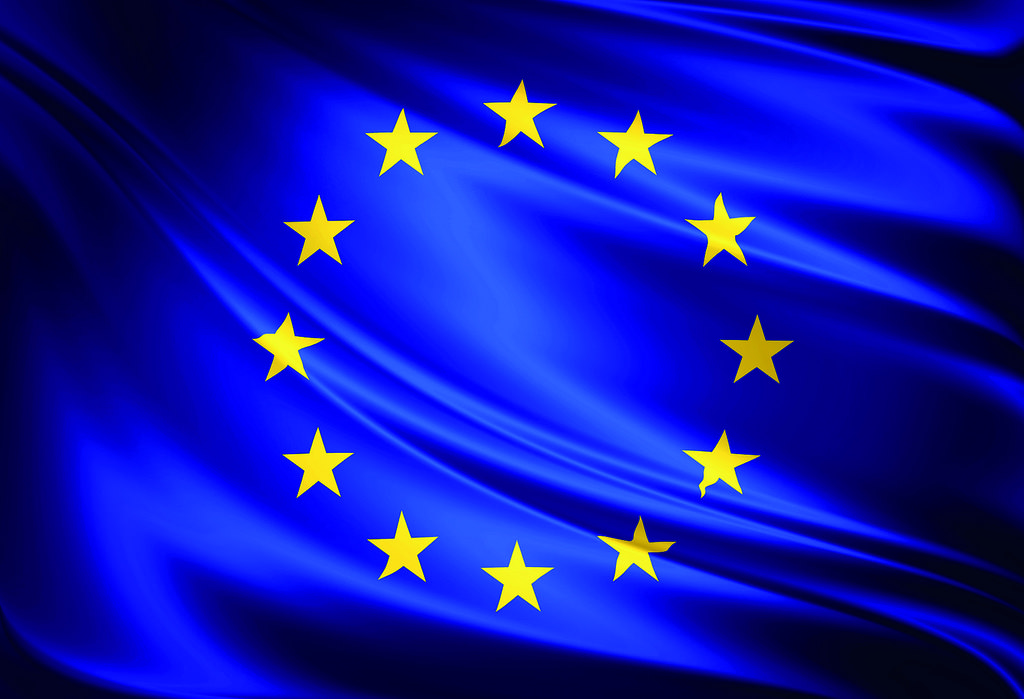
“Time is out of joint– Hamlet”[1]
In today’s day and age, in this mythical and metahistorical now that is Europe’s modernity, if something unique is afoot in Europe, it is this paradoxical impossibility of a “now we”, the incapacity for this modern and already traditional exemplary European Spirit to reconcile itself with itself, to gather together and close itself upon a present that is indeed, as Hamlet says “Out of joint”. It is within this disrupted and disjointed linearity of time, that “it is necessary to make ourselves the guardians of an idea of Europe, of a difference of Europe”[2], of a European cultural identity that is always disjointed with itself, with the self, already old for being modern, already modern for being contemporary. All my reflection will then be devoted to explore, go trough and finally beyond this movement of inheritance of a European idea.
Therefore it is precisely within a European legacy that is “always before [devant] us”[3], through this infinite task of critical but faithful inheritance, in pointing the bead of deconstruction there where the system doesn’t close, that we can invent the promise of a Europe “to come”, of an absolute future for a European exemplarity beyond Modernity, as unconditional openness to the wholly other.
The idea of Europe’s Modernity: always modern and already old
Despite the strong doubts that an event such as modernity has ever occurred in world history, given the fourteen periods of time it had been associated with since its first use in the 5th century4, European philosophers have posit the idea of Europe as the site where the “mythical moment when now began” [5], i-‐e the moment when modernity takes place. Hence, if there are still controversies among historians concerning the periodization of modernity in European history, it can certainly be said that the philosophical discourse of that little thing that Europe is, appears to be a discourse of Europe’s modernity. As Gerard Delantry argues in his book “Inventing Europe”, the idea of Europe as such “is a creation of the 15th and 16th century, for it was in those centuries that it entered into its own, as a secularised version of Christendom.” He then goes on drawing a strong implication between the former and the idea of progress, “which became synonymous with European modernity”[6]. In this sense, there is a one to one correspondence between the idea of Europe and the idea of modernity. Therefore, the idea of Europe since its very coming into being is the idea of Europe’s modernity. Indeed, in so far as Valery, in the first letter of The crisis of the Mind, gave this name to “a certain mode of existence instead of making it into a pure synonym of contemporaneity”[7], modernity is to be intended as a general state of human culture’s accomplishment in European civilisation.
Thus, it can be said that the mythical and metahistorical now of modernity is the philosophical story of the emergence of such a thing as “Europe” when properly named. Yet, despite the fact that Europe’s modernity is the product of “the three great Universalist revolutions of modernity: the Renaissance, the Reformation and the Enlightenment”, the notion of modernity should not be reduced to a mutually exclusive “quarrel between the Ancient and the Moderns”. The latter is not to be considered as a radical break with the past, but rather a shifting into the vision and division of the world that remains webbed to the same category of interpretation of reality. The idea of Europe came to substitute the old Christianisation‘s mission with the civilising one, the old division of the world between Christian and non-‐ Christian with European and non–European.“which became synonymous with European modernity”[6]. In this sense, there is a one to one correspondence between the idea of Europe and the idea of modernity. Therefore, the idea of Europe since its very coming into being is the idea of Europe’s modernity. Indeed, in so far as Valery, in the first letter of The crisis of the Mind, gave this name to “a certain mode of existence instead of making it into a pure synonym of contemporaneity”[7], modernity is to be intended as a general state of human culture’s accomplishment in European civilisation.
Kant, with its short but extremely significant writing “Idea for a Universal history” is undoubtedly the first “philosophical-‐ prophet” of the idea of Europe as the idea of modernity. Being a central figure of modern philosophy, the Kantian discourse of world history is rather the bearer of an “old” discourse of Europe’s modernity. Indeed, his idea of Europe as an international norm of civilisation and its world-‐widization over pre-‐modern uncivilized societies has its foundation in the Christian idea of the essential unity of humanity. The survival of the old European understanding of the world as God’s plan for Man is the very condition of an archeo-‐theological understanding of the idea of Europe as the first and ultimate source of universal rationality, of philosophy. Thus, it is because Kant ‘s world story “has a guiding threat a priori “, that its unfolding “according to a plan of nature” can find its origin (arché) in a European ancient Greece and its finality (telos) “in our part of the world which will probably legislate eventually for all other continents”[8]. In the light of our previous reflections it can be implied that the theological discourse of world history, having in Europe’s modernity its head and heading, is the bearer of an old European self-‐ understanding of the world that “ from Hegel to Valéry, from Husserl to Heidegger [..] is already a traditional discourse of modernity.”
A past that is before [devant] us: inheriting the future to come
“We must ourselves be responsible for this discourse of the modern tradition. We bear the responsibility for this heritage [..] It is necessary to make ourselves the guardians of an idea of Europe, of a difference of Europe but of a Europe that consist precisely in not closing itself off in its own identity and in advancing itself in an exemplary way toward what it is not, toward the other heading or the heading of the other [..] toward the other of the heading, which would be the beyond of this modern tradition, another border, another structure, another shore”[10].
If the idea of Europe is the idea of Europe’s modernity –i.e the philosophical discourse of World history is the discourse of Europe’s modernity-‐ then the possibility of a future for Europe beyond modernity lies precisely in this contradictory injunction, in this double duty of the “heterogeneity of inheritance”[11]. Indeed the inheritance of European legacy is this exemplary aporietic act of reaffirming in choosing, “harbouring within it an alterity that offers the chance of something altogether other, beyond the economy of the modern tradition that is received”[12]. How would it be possible to conceive a future for Europe beyond modernity within its own legacy, its own past? The identification of the value of the “to come” with the legacy of the past lies in the disrupted linearity of the time of inheritance. As Derrida goes repeating all along his Spectres of Marx “Time is out of joint”[13]. The Shakespearean formula that haunts and obsesses Derrida’s political reflections has a particular meaning in the economy of inheritance. As Derrida puts it “inheritance is never a given, is always a task. It remains before [devant] us”.[14] In inheriting the irresolvable aporia of European cultural identity one inherit the double duty-‐ “neither monopoly nor dispersion”-‐ to appropriate a past, a capital memory that cannot be identical to itself, that cannot gather and close upon itself, that resists appropriation so that the work of inheritance can never be completed. The impossible movement of inheriting is one that take place in this peculiar spatialization of time: “any legacy thought to lay in the past contains in itself a remainder, eludes mastery in the present, a reminder that therefore awaits the heir in the future”[15]. In this sense a legacy is always both behind and in front of the heir since it is never fully present in the present.
If within and from the logic of the inheritance we have establish a direct implication between future and past, the latter should never be mistaken with the conservative taste for the end proper to the onto-‐ archeo-‐teleological discourse of Europe’s modernity, but rather identified with a desire to free the value of the future from the value of the horizon. Indeed as Derrida puts it in another context “there is no to come without inheritance”[16], the futurity we are considering is neither a future anterior nor a future “now”, a future present, but the absolute futurity of the “to come”, of the unforeseeable. Thus, all inheritance of the paradoxical idea and identity of Europe is never “simply to record or store up in the archives, a necessity that is already at work anyway”[17] but rather to “affirm in recalling”, to reaffirm the past.
“What does it mean to reaffirm? It means not simply accepting the heritage but relauncing it otherwise and keeping it alive. Not choosing it (since what characterize an inheritance is first of all that one does not choose it; it is what violently elect us), but choosing to keeping it alive”.[18]
Therefore it can be implied that this categorical imperative of inheritance is less the duty of saving an old modern European story than the responsibility of engaging with the past in order to free the idea of Europe “from this onto-‐theo-‐archeo teleology that locks up, neutralize and finally cancels history”[19], to free the value of the future from the value of the horizon in the opening up of the event of a Europe beyond its modern autobiography, beyond itself.
The opening of the horizon from the heading: a new European exemplarity
If the movement of inheriting is the infinite task of engaging a European autobiographic story in a restless self-‐critique, it is precisely in and within this dialectic of the past that the possibility of a future for European exemplarity beyond these modern and already exhausted discourses of Eurocentrism and Anti-‐ Eurocentrism is to be found. Indeed if the logic of exemplarity is to be intended as the inscription of the universal value of European cultural identity in a “singular body”, where Europe is not just any sample but the “good example”, the teleological example of the universal essence of mankind, the attempt to invent a European identity that “no longer obeys the form, the sign or the logic of the heading “[20] has its condition in the necessity to” keep the heading[21]”. It is exactly in working within the heritage of the logic of the example, pointing the beam of deconstruction in the disjointing link, there where the system could not close upon itself, that an opening for a new context and a new exemplarity to come is to be recognised. In this sense, this self-‐critique of European exemplar identity is not a “depart” and separation from an old modern Europe, but rather a “return to another origin of old Europe that could never be the object of search or discovery”[22].
If the discourse of Europe’s modernity is “out of joint” the incapacity for European Spirit to gather and close itself upon a present is, as Guenon points out in its analysis of the figure of Europe “the return of the Spirit to an origin of the self that goes missing”[23]. Indeed, in a dialogue with the Italian philosopher Giovanni Vattimo, Derrida remarks:
“ The other is in me before me: the ego (even the collective ego) implies alterity as its own condition. There is no “I” that ethically makes room for the other, but rather an “I” that is structured by the alterity within it, an “I” that is itself in a state of self-‐deconstruction, of dislocation”[24]
As Gasché argues in its analysis of Derrida’s “new ontology “of the European eidos, this self-‐critique of European identity is less a break with the Greek origin of Europe –a preference for a Greek beginning is justified by its “indestructible and unforeseeable resource of Greek logos”[25] – then the inscription within it, not of the other of the self, but of the wholly other. If, from Kant to Husserl, the birthplace of the European Spirit is to be found in a metaphysical geography of ancient Greece, Derrida in “Nous autres Grecs,” returns to an old origin of Europe in order to disclose, there where the system doesn’t close, “the disownement that from the start happened to them (Greeks)”[26]. By an attentive analysis of Greek words such as pharmakon, kora, hymen “that could not close upon themselves”[27] and which consequently “had already been marked by the irruption of the other“[28], Derrida identifies the uniqueness of Europe, thus, its exemplarity, in the figure of a non-‐closure upon itself, the irruption of alteriy within and before this birthplace of a European “I”.
Therefore it is exactly in this disownment of European sameness in its very place of birth, that the ceasing of a teleological movement of European cultural identity, as arché and telos of world history, provides the opening of a new and unconditionally non saturable context, not only to the other of the self, but to the wholly unforeseeable other to come. In breaking from, and within the onto–theo-‐archeo-‐teleology of Europe’s modernity, via a critical and faithful “heroism of reason“, the value of the future is free from the value of the horizon, “an horizon being, as the Greek word indicates, a limit from which I pre-‐comprehend the future. I wait for it, I predetermine it, and thus I annul it”[29] Thus, if every teleology is, in the end, a negation of the future, it can be implied that the possibility for European exemplarity “to come”, the future for a unique European idea beyond Modernity is identifiable with the absolute value of the future itself.
“For something to come it has to be a future, thus if there is a categorical imperative, it consist in doing everything for the future to remain open [..]The future is the opening in which the other happens [arrive] and it is the value of the other or of alterity [..]Ultimately this is my interpretation of the messianic. The other may come or he may not. I don’t want to programme him, but rather to leave a place for him to come if he comes”[30]
In virtue of this infinite task that is inheritance, within a time that is “out of joint” where the future, always haunting the past, is never there –“now” –but always “to come”, a newly new figure of European exemplarity beyond modernity, i.e beyond itself and its logic of the heading, is to be found in the unconditional and unmasterable openness to another non staurable messianic, a non-‐programmatic emancipatory promise of the “wholly other” to come -‐ if he comes.
Elena Maggi, étudiante à la London School of Economics
1 Derrida, J., Magnus, B. and Cullenberg, S. (2006). Specters of Marx. 1st ed. New York: Routledge. 2 Derrida, J. and Derrida, J. (1992). The other heading. 1st ed. Bloomington: Indiana University Press. 3 Derrida, J., Magnus, B. and Cullenberg, S. (2006). Specters of Marx. 1st ed. New York: Routledge.
4 Jameson, F. (2002). A singular modernity. 1st ed. London: Verso
6 Delanty, G. (1995). Inventing Europe. 1st ed. Basingstoke, Hampshire: Macmillan.
7 Valéry, P. (n.d.). The Crisis of Mind”, in History and Politics. The Collected works of Paul Valéry. Edited by Jackson Mathews [. T. X, XII-XIII.]. 1st ed. New York: Pantheon Books
8 Kant, I. and Reiss, H. (1991). Idea for a Universal history with a Cosmopolitan purpose in Kant. 1st ed. Cambridge [England]:
Cambridge University Press.pp.52
10 ibidem ( my emphasis)
11 Derrida, J., Magnus, B. and Cullenberg, S. (2006). Specters of Marx. 1st ed. New York: Routledge.
12 Haddad, S. (n.d.). Derrida and the inheritance of democracy. 1st ed.
13 Derrida, J., Magnus, B. and Cullenberg, S. (2006). Specters of Marx. 1st ed. New York: Routledge.
14 ibidem
15 Haddad, S. (n.d.). Derrida and the inheritance of democracy. 1st ed
16 Derrida, J. and Vattimo, G. (1998). Religion. 1st ed. Stanford, CA: Stanford University Press.
18 Derrida, J. and Vattimo, G. (1998). Religion. 1st ed. Stanford, CA: Stanford University Press
19 Derrida, J. (2012). Specters of Marx. 1st ed. Hoboken: Taylor and Francis.pp.93
20 Derrida, J. and Derrida, J. (1992). The other heading. 1st ed. Bloomington: Indiana University Press.
21 Derrida, J. and Derrida, J. (1992). The other heading. 1st ed. Bloomington: Indiana University Press.
22 Michael Naas, ‘Introduction’, in: Jacques Derrida, The Other Heading, Indiana University Press (1992) my emphasis
24 Derrida, J., Ferraris, M., Donis, G. and Webb, D. (2001). A taste for the secret. 1st ed. Malden, MA: Polity.
25 Gasché, R. (2009). Europe, or the infinite task. 1st ed. Stanford, Calif.: Stanford University Press.
26 This piece is presented in a symposium organized by Barbara Cassin in 1990 at the Sorbonne on the comntemporary appropriation of antiquity;
27 ibidem
28 ibidem
29 Derrida, J., Ferraris, M., Donis, G. and Webb, D. (2001). A taste for the secret. 1st ed. Malden, MA: Polity
References
Delanty, G. (1995). Inventing Europe. 1st ed. New York: St. Martin’s Press.
Derrida, J. and Derrida, J. (1992). The other heading. 1st ed. Bloomington: Indiana University Press.
Derrida, J. and Vattimo, G. (1998). Religion. 1st ed. Stanford, CA: Stanford University Press. Derrida, J., Ferraris, M., Donis, G. and Webb, D. (2001). A taste for the secret. 1st ed. Malden,
MA: Polity.
Derrida, J., Magnus, B. and Cullenberg, S. (2006). Specters of Marx. 1st ed. New York: Routledge.
Gasché, R. (2009). Europe, or the infinite task. 1st ed. Stanford, Calif.: Stanford University Press.
Guénoun, D. and Irizarry, C. (n.d.). About Europe. 1st ed.
Haddad, S. (n.d.). Derrida and the inheritance of democracy. 1st ed. Jameson, F. (2002). A singular modernity. 1st ed. London: Verso.
Kant, I. and Reiss, H. (1970). Kant’s political writings. 1st ed. Cambridge [England]: University Press.
OUPblog. (2016). Glendenning.S Derrida and Europe beyond Eurocentrism and Anti- Eurocentrism | OUPblog. [online] Available at: http://blog.oup.com/2012/04/derrida- european-philosophy-eurocentrism/ [Accessed 2 Dec. 2016].
Valéry, P. (n.d.). The Collected works of Paul Valéry. Edited by Jackson Mathews [. T. X, XII- XIII.]. 1st ed. New York: Pantheon Books.





No Comment